The above phrase by Rob @philosopher1978 stayed with me… such simple words that mean so so much! This is why we need philosophers!!!
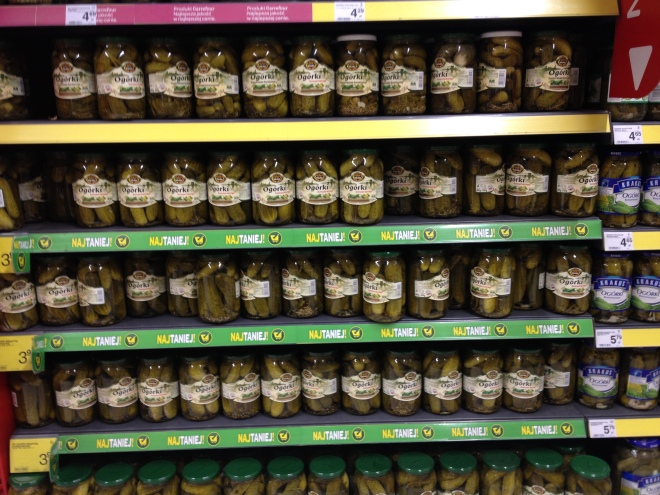
Is this what we are after?
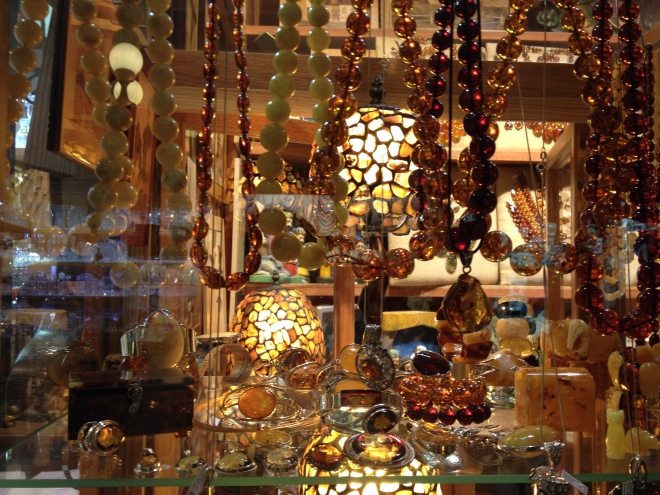
… or do we prefer this and what does this mean in the context of OER and OEP?
It was the first time I experienced the Open Education Global conference and it was truly fascinating to find out about open ed projects that were happening in different parts of the world and most importantly connect with some of the people associated with these.
The conference started with the Open Ed scene in Poland while during the conference I had the pleasure to meet and chat with Dr Tomasz Boinski a lecturer in Computing from Poland. We started talking after our contributions and I could sense that he was keen to make a real difference in his institution through opening-up practices. We started talking about our open source app we are developing at the moment and he offered to help us with finding the right licence for this and forwarded extensive resources around these which will be extremely useful for our project. On the last day, Jaroslaw Lipszyc, a polish poet, emphasised that he sees open as free, and therefore he claimed, that we don’t need the word ‘open’. But open doesn’t come without a cost attached… there is the human cost, time and resources etc. Even if for the learner the “open education product or experience” is free or freely available, the process of making this happen can be costly and rarely calculated in especially when we talk about non-funded projects and funded projects usually have a funding time frame which doesn’t go on for ever… some might.
RESOURCES
I felt that there was still a strong focus on content at the conference and many seem to be working on the production of OER, including film format. We are creating more and more such resources, not just universities but also private providers. Are we reducing learning in the open with watching videos?
While we talk about active learning, many do watch videos for hours and I can see this with my own children. We often reach out to YouTube to learn a new skill or find a new recipe or activity. It is not just children… My youngest started video production and shares his films via YouTube with others. He shares Minecraft stuff. It is an interesting development and I haven’t asked him yet why he is doing it. Looking at it from my perspective it almost feels as if he wants to give something back, as if he wants to connect through his work with others, he loves it when others leave feedback on his clips. So I think it is more than just watching videos, it might be more about connecting with others in a very humane way and non personal at this stage as he is only 12 and he is using a pseudonym. So the social interaction he has are at a somehow removed level.
My eldest, 14, seems to have great fun watching science films and funny stuff on YouTube.He hasn’t got a channel and doesn’t leave digital traces behind. He doesn’t share the stuff he creates, except some clips we added to my YouTube channel a while back now. I often hear him laughing loudly and there seems to be emotional engagement when he watches the clips, it is really fascinating. Sometimes the boys watch YouTube video on telly… My eldest also started coding and he can do this for hours,he is searching for help to develop what he wants without interacting with anybody online… As far as I can see. We haven’t got any firewall but both seem to have a maturity when navigating through the video jungle. Two very different behaviours which make me think about learners more widely and there is something there that reminds me of the digital residents and digital visitors model by Dave White and Alison LeCornu and other stuff that might indicate that change is happening. Both are autonomous and know where to look when they need help.
… I only have snippets of their digital behaviour and habits and maybe this is problematic especially as they are still children. Do we trust them too much? Is this freedom good for them or not?
Back to my world… still thinking about resources… While I recognise the need for putting together course resources it would be useful to further explore opportunities using inquiry-based models of learning which would I think free us from racing to produce new content. We have done this in different open initiatives such as FDOL, BYOD4L and FOS as well as #creativeHE. Could we shift the purpose of creating resources for teaching to capture the process of (co-)constructing learning? After all we learn so much more through experiencing and making stuff. Is this another reason why OER are not used that widely? As we want to create our own resources as educators since we recognise that the process of making helps us engage deeper with our subject that we will help others understand? Is it also about academic ownership? And what about context? De-contextualised resources with global reach… how valuable are these? I am now wondering if the real potential of resources is actually (c0-)creating these as part of the learning process? Could the resources actually be more valuable for the creator and what does this mean about sharing? Are resources more ephemeral than we think? If we talk about authentic learning, could we instead use open data as Dr Javiera Atenas invited us to keep learning and teaching fresh, fully contextualise and create the conditions for an inquiry-rich environment for learning through discovery?
PRACTICES
As an open practitioner with a focus on work that sits outside MOOCland, I was interested to hear at the conference how things have progressed within it. In some cases making available resources equated to course design in a MOOC context. This was very problematic for me… I was looking for a pedagogical rationale but couldn’t see it. Some called this platform pedagogy. Not sure what this is… There were some cases and I had read about them and included in my Literature review were MOOC organisers recognised the need for social learning including learning in groups and collaborated with other institutions or colleagues in other institutions to facilitate these. One of these projects was introduced by Alannah Fitzgerald and it was fascinating to hear their exploration into using facilitators in a MOOC as well as groups and the difficulties they experienced with both but also with the technology, the team tool from EdX. Alannah mentioned “platform education”. Is this similar to teaching from within a VLE or LMS? I shared with her some information about our work in this area outside the MOOC world and the Open Facilitator Project. I would have loved to find out more but in the end we didn’t manage to get together again. At scale the challenges are amplified, of course, require big investments in time and resources, but also a robust pedagogical scaffold, I would say. The support scaffold is vital but often missing.
The conference didn’t help me understand “massive”. I am still confused why we need and often start with massive. Somewhere I read “what we mean by massive, is the potential, the potential is massive”… But does massive work? Businesses start small and in nature things grow from a seed… Does the education world know better? What is the rationale for massive and global? And what are the real expectations? What are we trying to achieve and what is happening in reality?
The more I think about it the more I see grey zones in open education. Maybe I see them more as red zones, zones that are alarming. We all have different motivations, of course, why we are in it, in open education. If only we could collect authentic and honest responses, I think that might be eye opening… Would there be any surprises? Philosopher Dr Rob Farrow, highlighted that some of us see Open Education as a moral mission. What about everybody else? The OER Hub invited us to think big… how big can we think? And how can we make our thoughts and ideas reality? And what would we change through these if we could make them happen?
My own research reveals that learning with others and being supported by facilitators makes a big difference, feeling part of a community that fosters online and offline interactions shape our engagement in open learning with others who are like us and very different from us. Like-minded people create a sense of belonging and other-minders people stretch us intellectually. Above all, we flourish when there is variety… Variety of people, variety of approaches and freedom to make our own choices.
Learning has always been personal. How can we think that technology would change this? We are still seeking personal connections. Technology actually can strengthen such opportunities and create new ones. I have used this example before… The party. And I have a question for all of us: when we go to a party, do we chat and dance with everybody? Does it depend on the size of the party? How many people are there? How confident we are etc. etc? But I am sure if there are loads and loads of people there, we wouldn’t even attempt to interact with all in a personal way. Or would we? But we would reach out to a few, or one other individual nearby perhaps? But then again, sometimes we go to the party with somebody and stick with this person throughout. Are there parallels? Something to think about…
COMMUNITIES
What really matters are the conversations, the collaborations and feeling and being part of what is happening around us, nearby and sometimes further away. We humans always had a need for belonging as social beings and social media can be useful tools that help us connect with others in the digital jungle. Open practitioners as I mentioned already use a variety of tools and platforms, including social media. Dr Leigh-Anne Perryman and Tony Coughlan shared some findngs from their Facebook project and it was lovely to hear that the emphasis was on community. Educators and learners are appropriating social media for learning, teaching, professional development and research and they have become valuable spaces to be to meet peers and keep up-to-date with what is happening in our area. I had a very interesting conversation during the conference with Tony Coughlan about social media and open practice. Are they compatible, we were asking ourselves with open practices? Dr Ronald Macintyre in his contribution about the “hidden tariffs” also talked about the fact that open educators might be exploited by others economically… I have felt uncomfortable about this for some time now, despite the fact that I am using social media regularly and the open projects I have initiated are all built using these. There are open practitioners out there who stay away from social media, not because they don’t like to be with others and share but because of the commercial character of social media. The poet Jaroslaw Lipszyc mentioned that we can learn loads from the open source community.Tony Coughlan has written a post about the conference and included some thoughts around this too.
“In distance education the equivalent space is owned by network providers and proprietary platforms such as Twitter and Facebook, whose primary motivation is commercial rather than educational, so their environments are designed for commercial benefit.
The open education movement has some experience of this type of challenge, as open textbooks and journals have been challenging commercial publishers with similar priorities.” (Coughlan, 2016)
I am just wondering what we could do about this as an open community… some ideas are emerging…
Very pleased I went to the OER Hub action lab on the last day where we got some insights into the very first voices that come through the survey that was shared recently. All data will be open data and I am looking forward to reading some of this. With Viviene Vladimirschi, a PhD student buddy from Brazil, we actually would like to do a tiny bit of work on some of the data linked to the action lab we participated and hope this will be possible. One of the key outcomes for me from this action lab was that we need frameworks into open pedagogical practices. I am working on one of them for collaborative learning in open settings. So that was good to hear that my work might be of interest to others. Hopefully others will test it in practice and develop it further.
 A big thank you to the GO-GN and the OER HUB team, Prof. Martin Weller, Dr Bea de los Arcos, Dr Rob Farrow, Dr Beck Pitt, Natalie Eggleston for supporting this trip and enabling me to share the work we do within the Centre for Excellence in Learning and Teaching at Manchester Metropolitan University with many colleagues from my own and other institutions in the area of open education and related PhD research. A big thank you also to all colleagues PhD students part of GO-GN who were present and others who engaged online as well as Prof. Robert Schuwer and Prof. Fred Mulder for their camaraderie.
A big thank you to the GO-GN and the OER HUB team, Prof. Martin Weller, Dr Bea de los Arcos, Dr Rob Farrow, Dr Beck Pitt, Natalie Eggleston for supporting this trip and enabling me to share the work we do within the Centre for Excellence in Learning and Teaching at Manchester Metropolitan University with many colleagues from my own and other institutions in the area of open education and related PhD research. A big thank you also to all colleagues PhD students part of GO-GN who were present and others who engaged online as well as Prof. Robert Schuwer and Prof. Fred Mulder for their camaraderie.

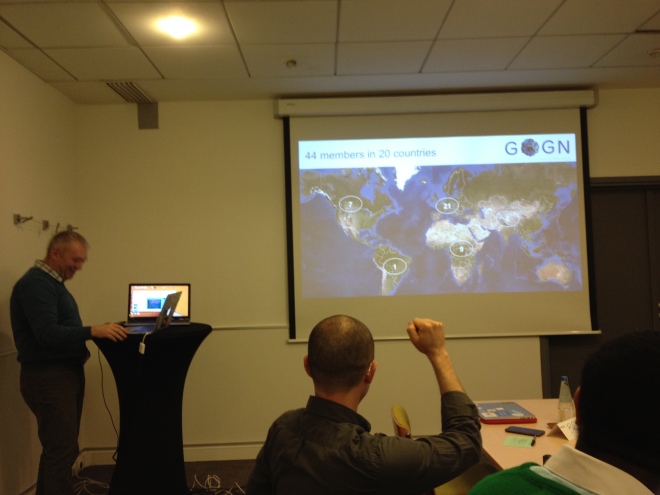
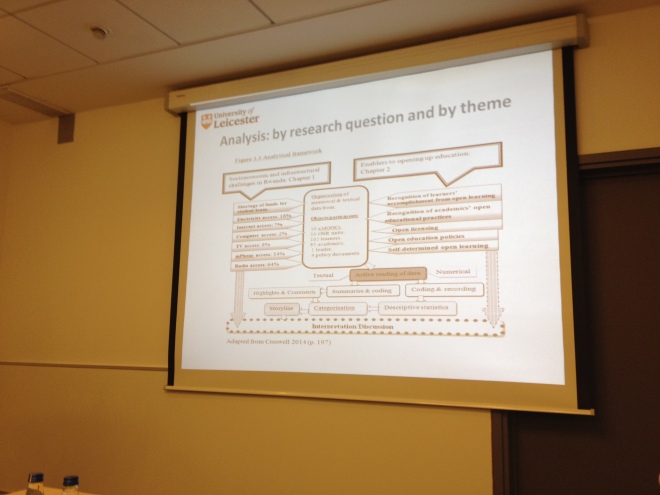
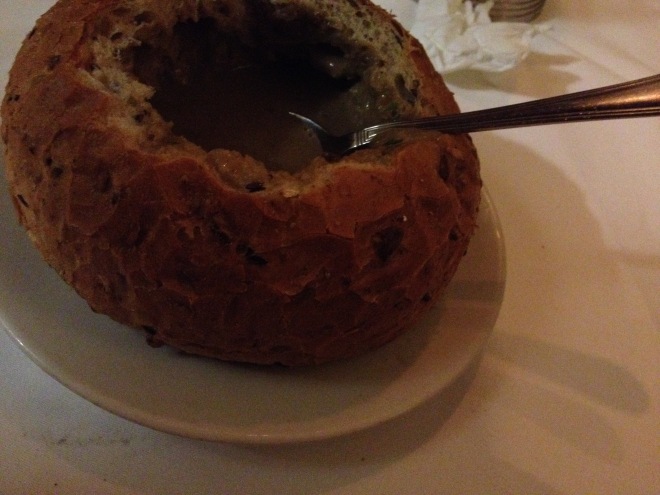
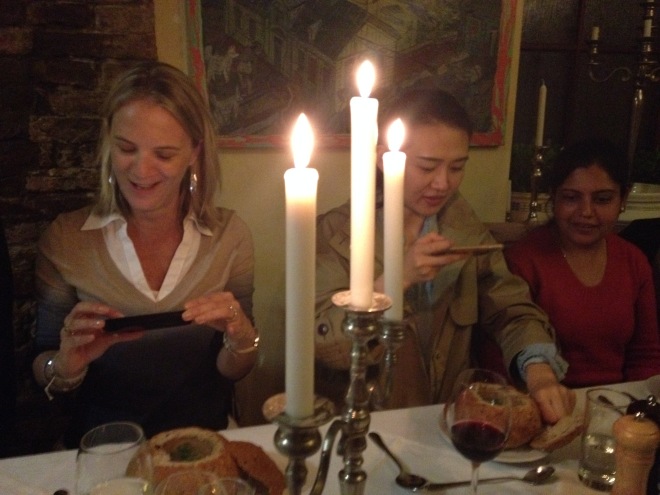
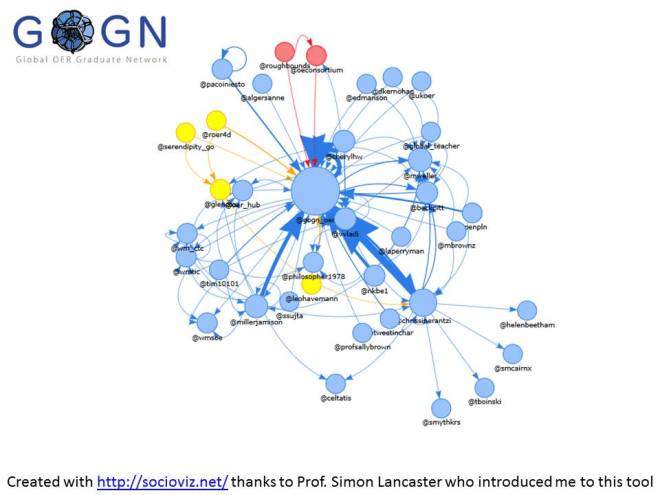
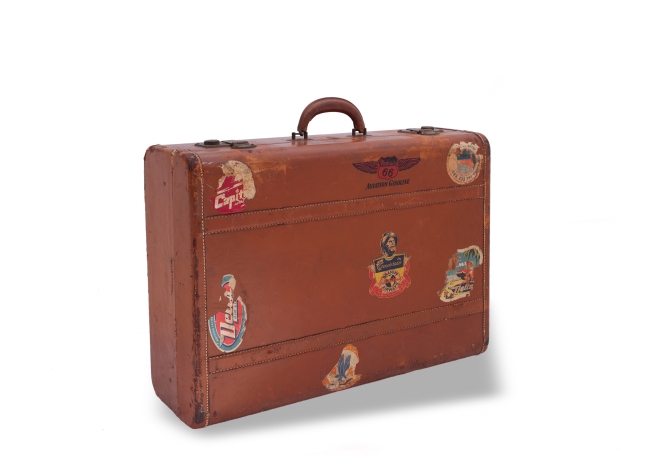
You must be logged in to post a comment.